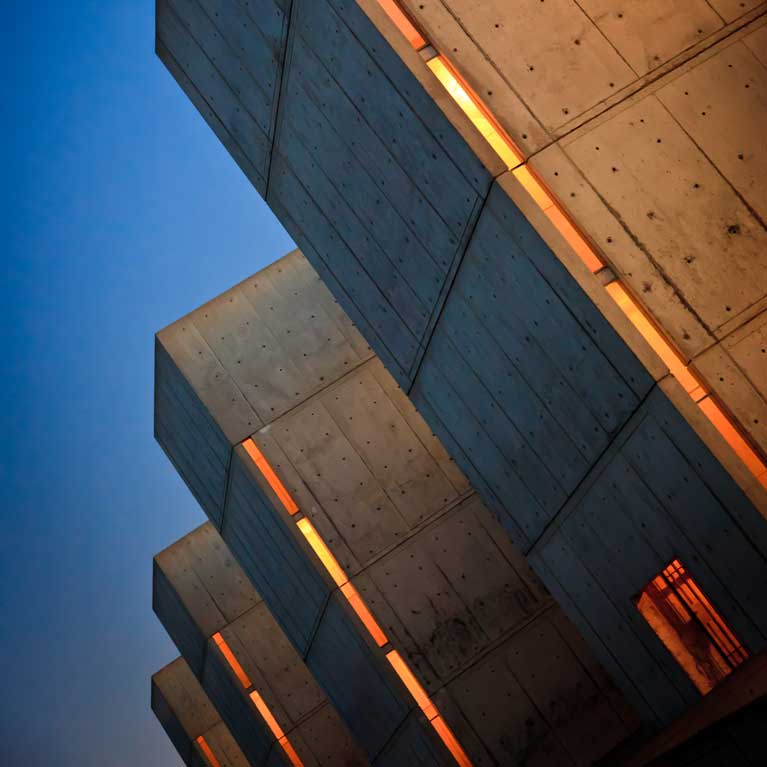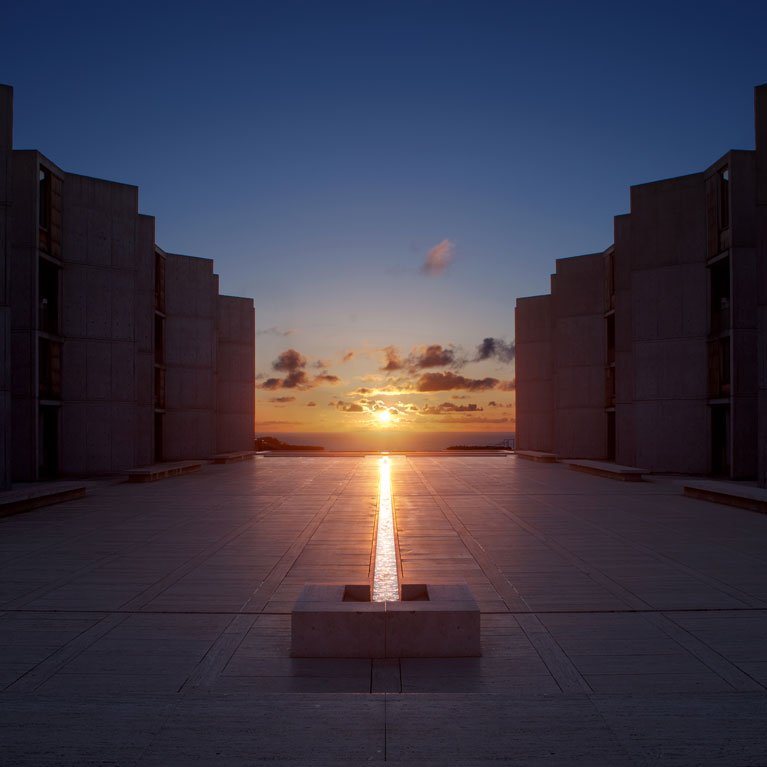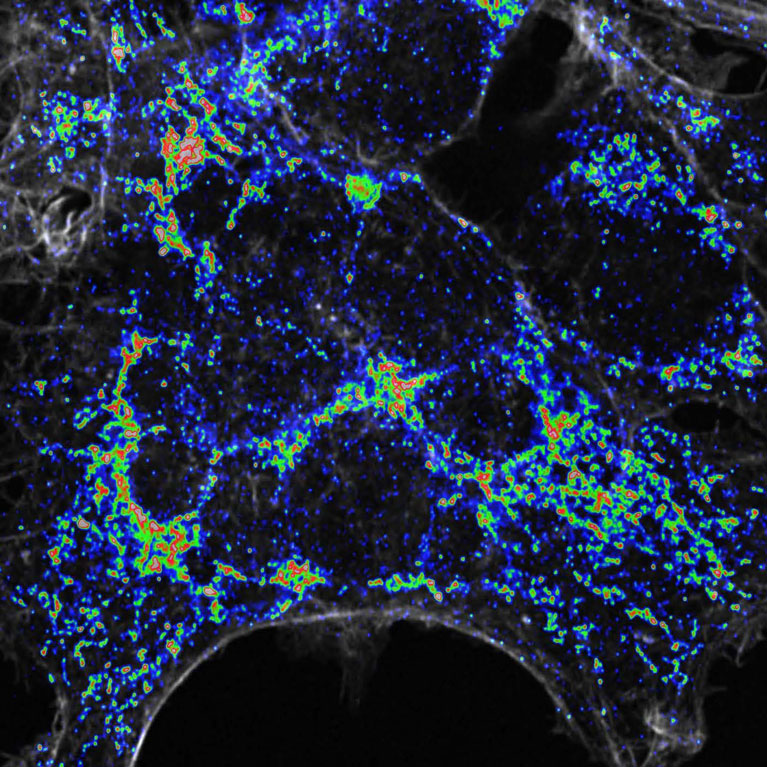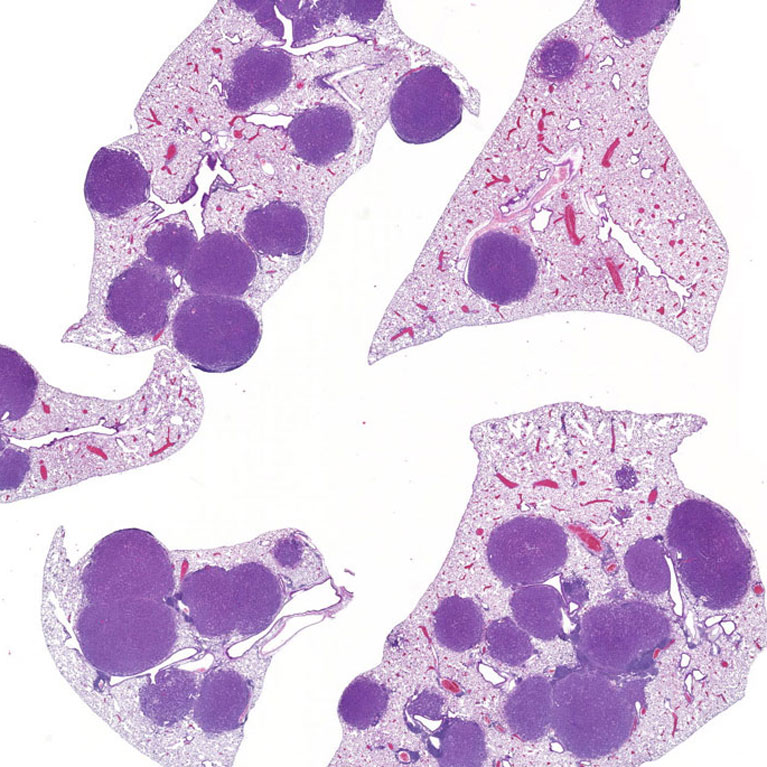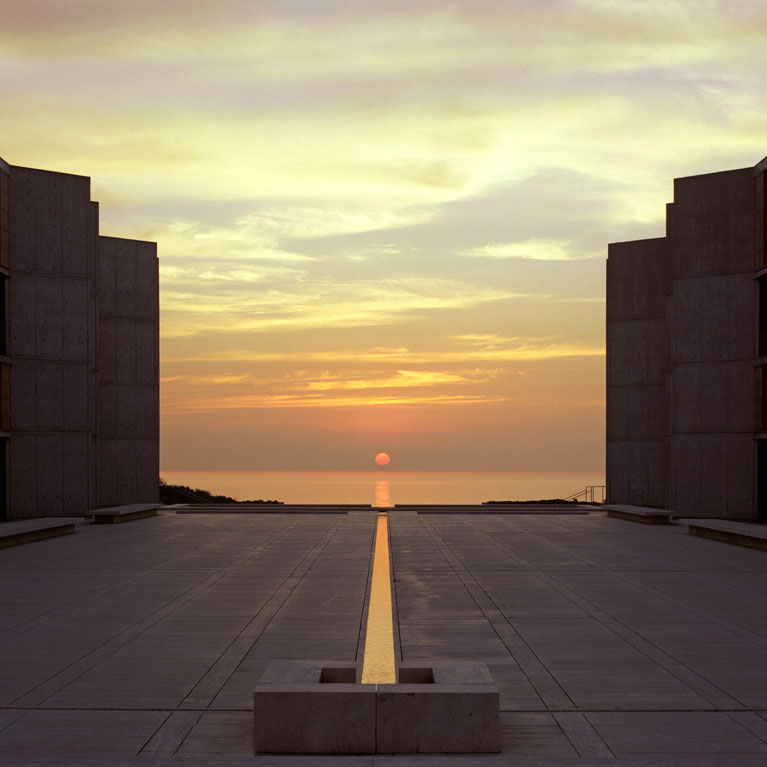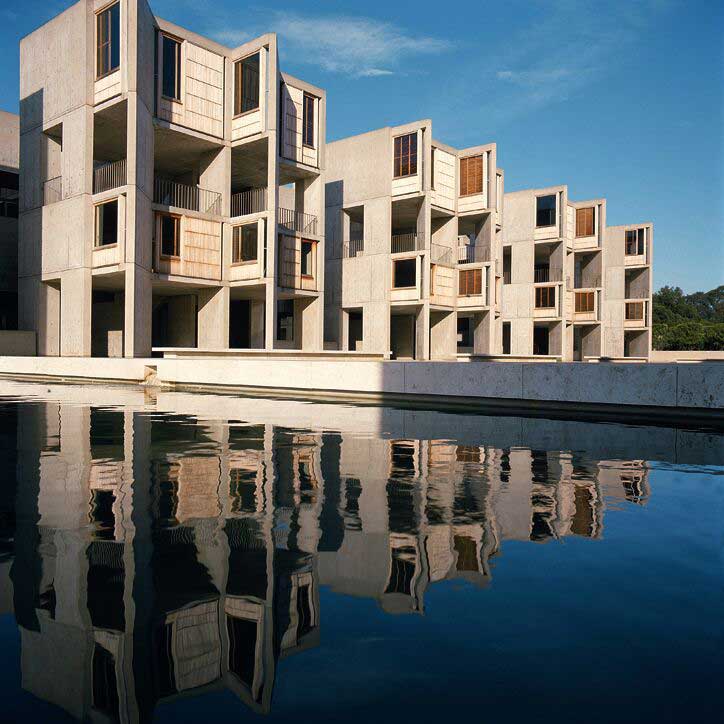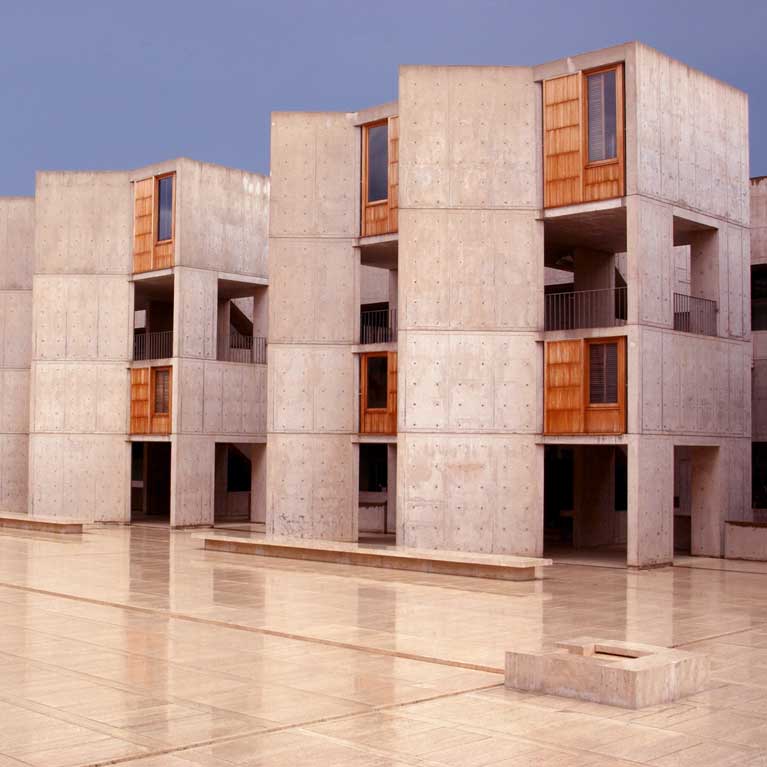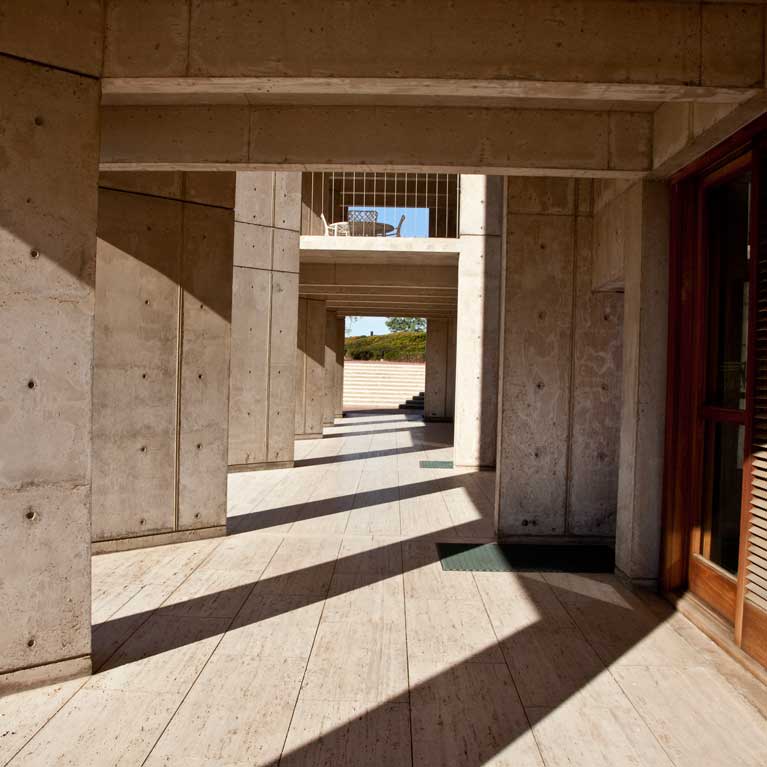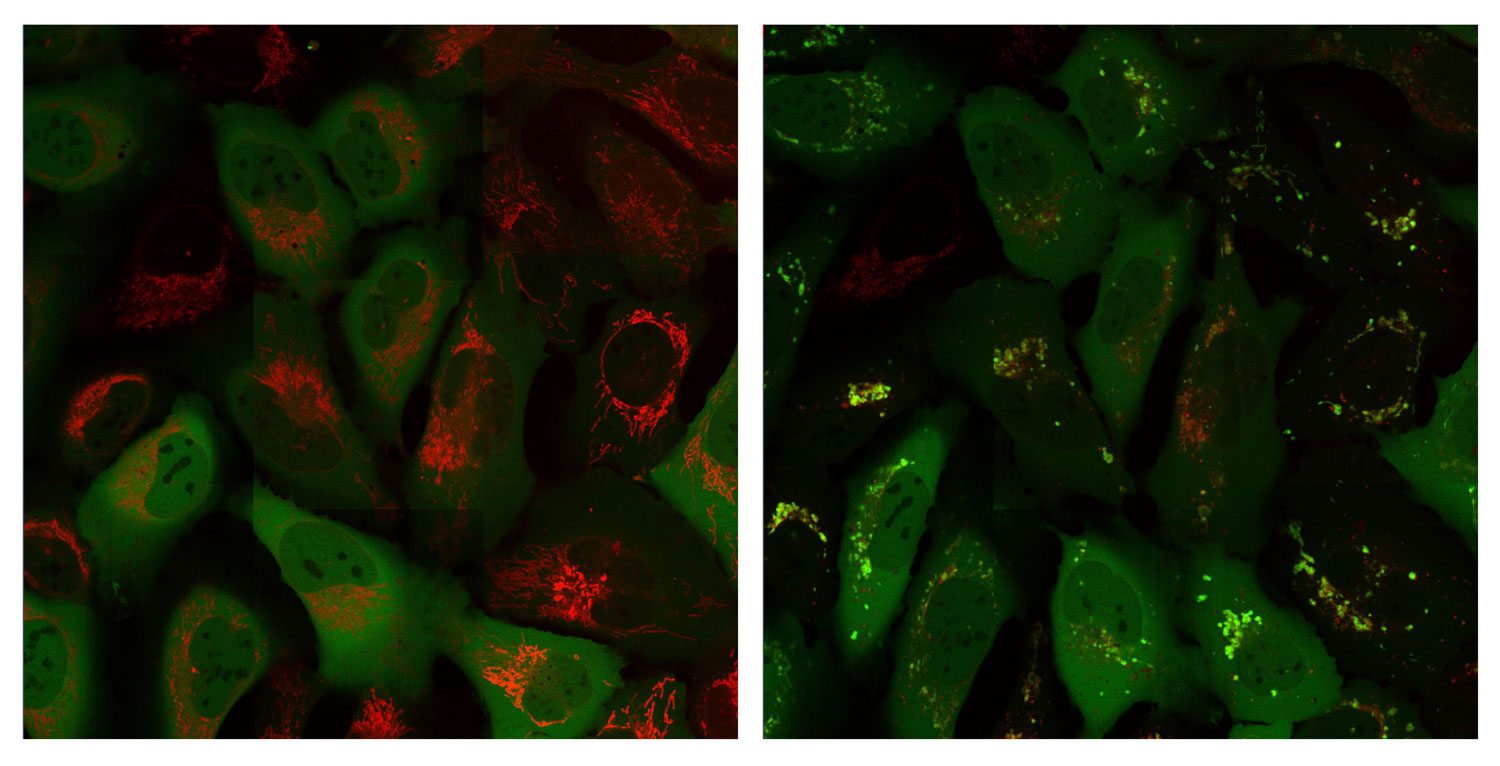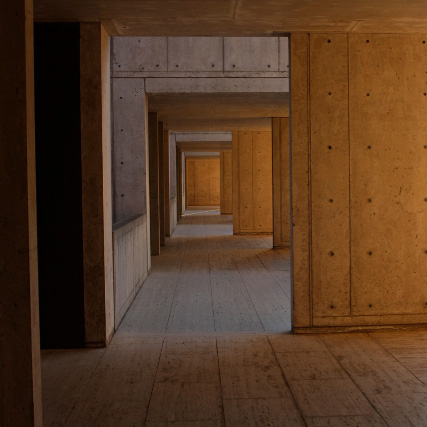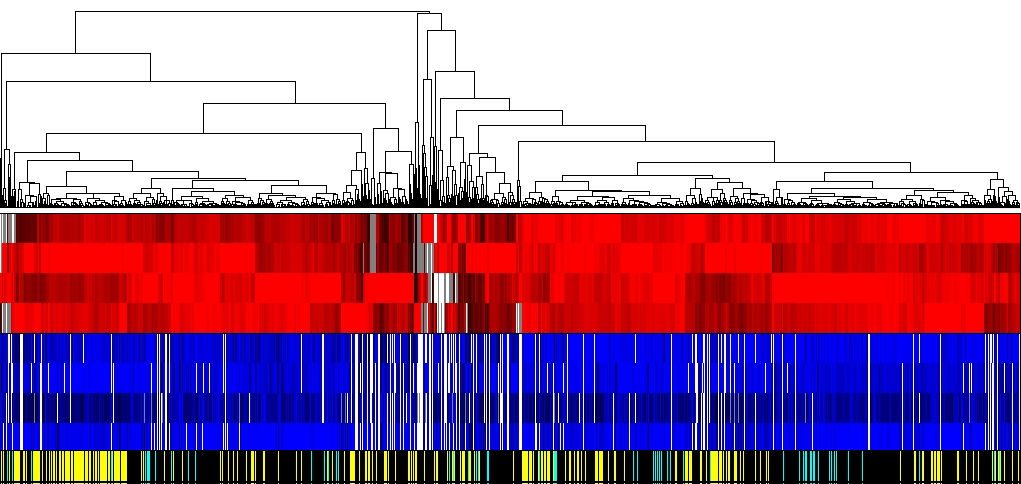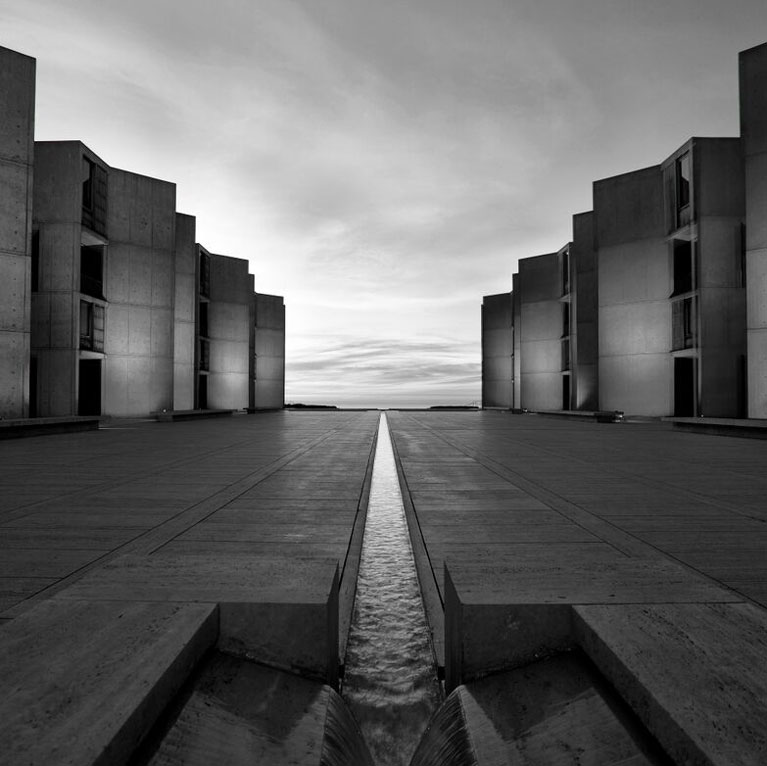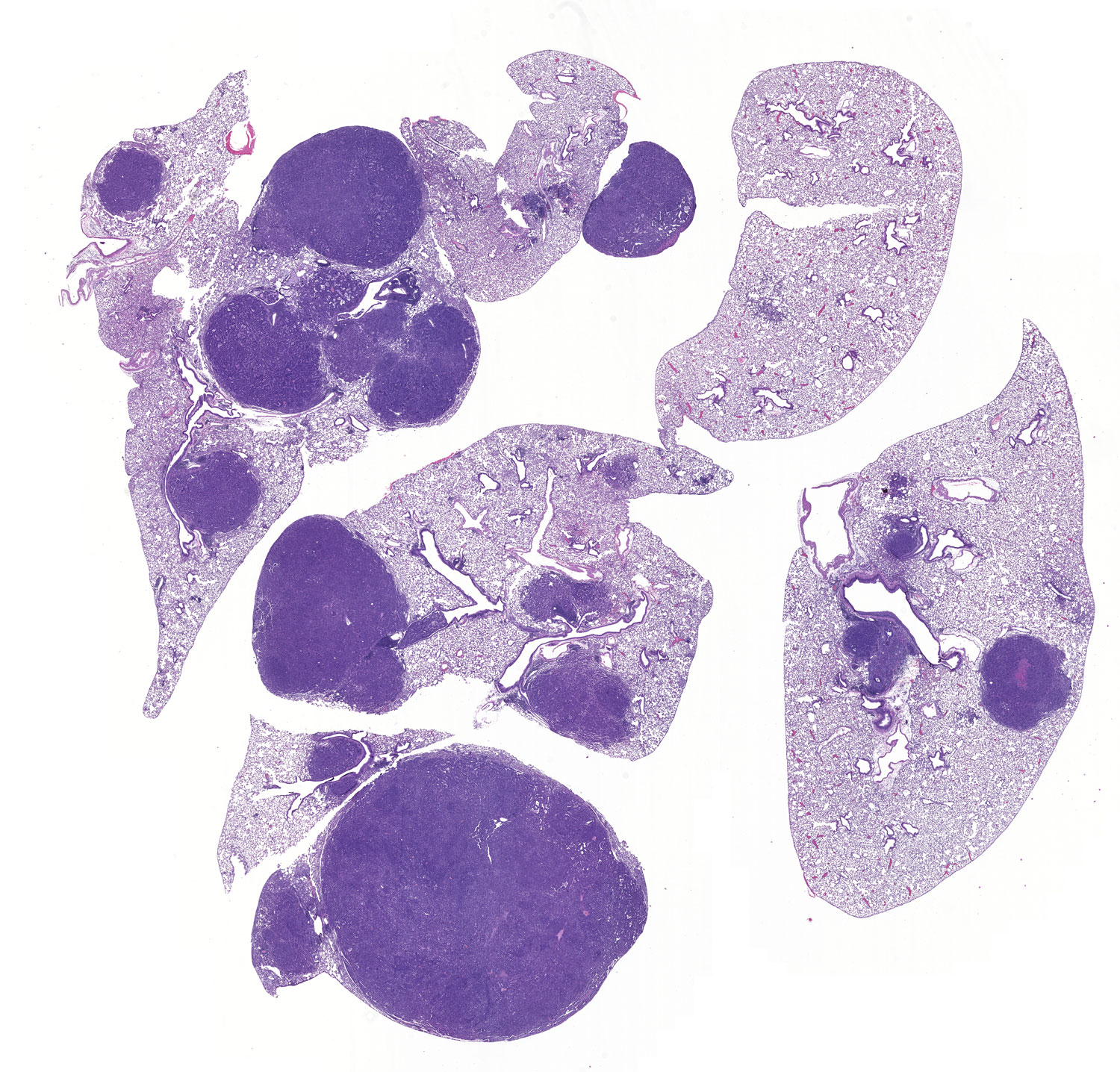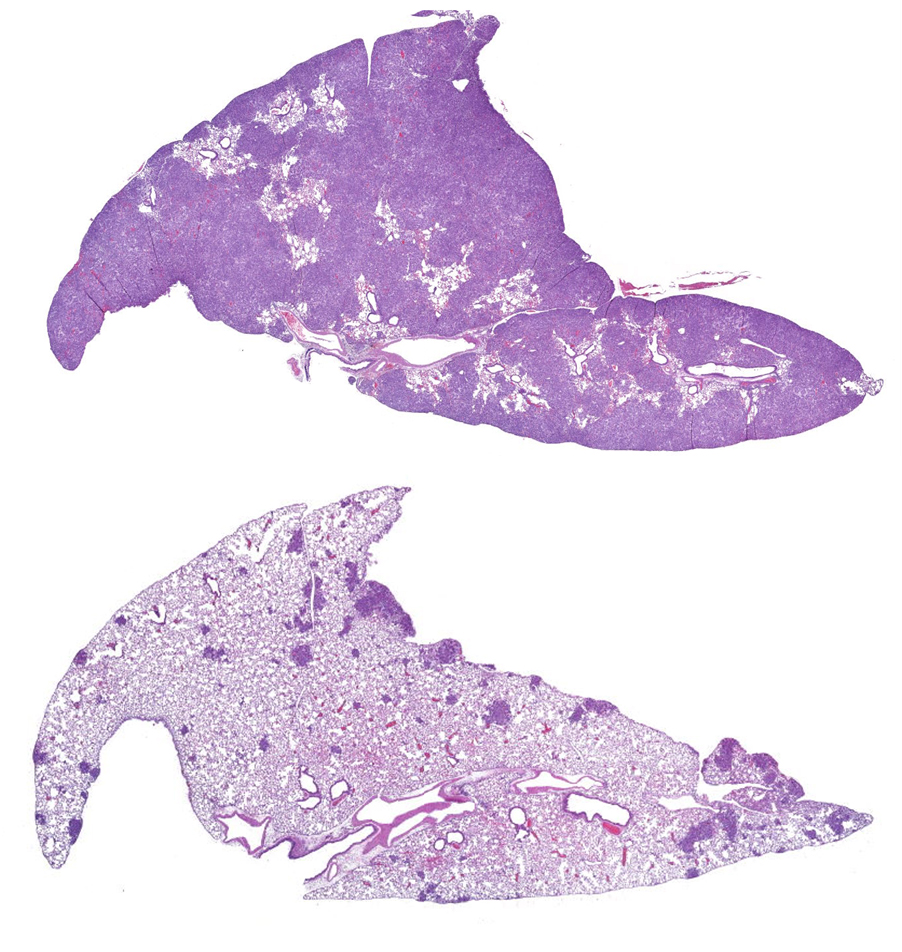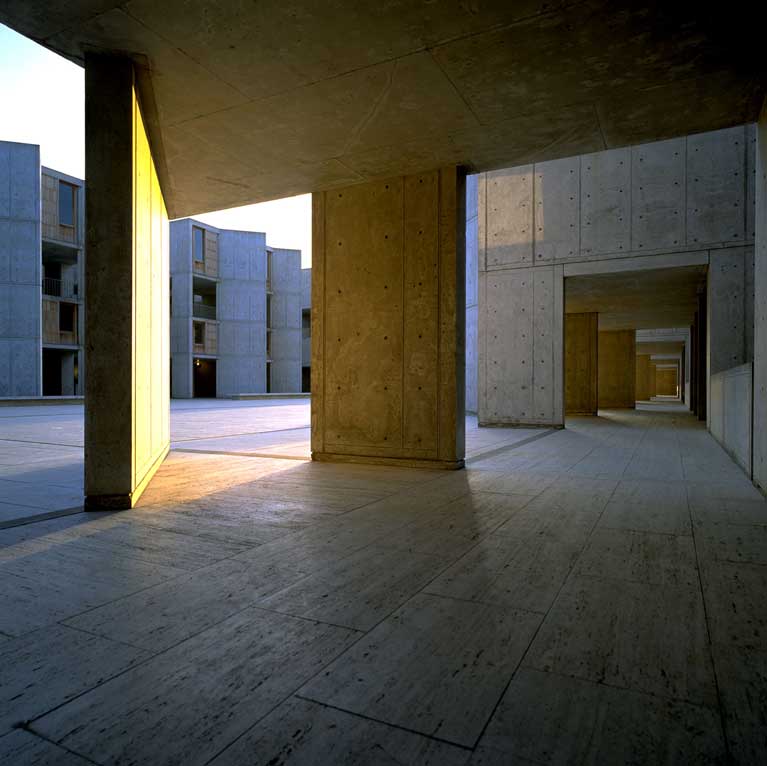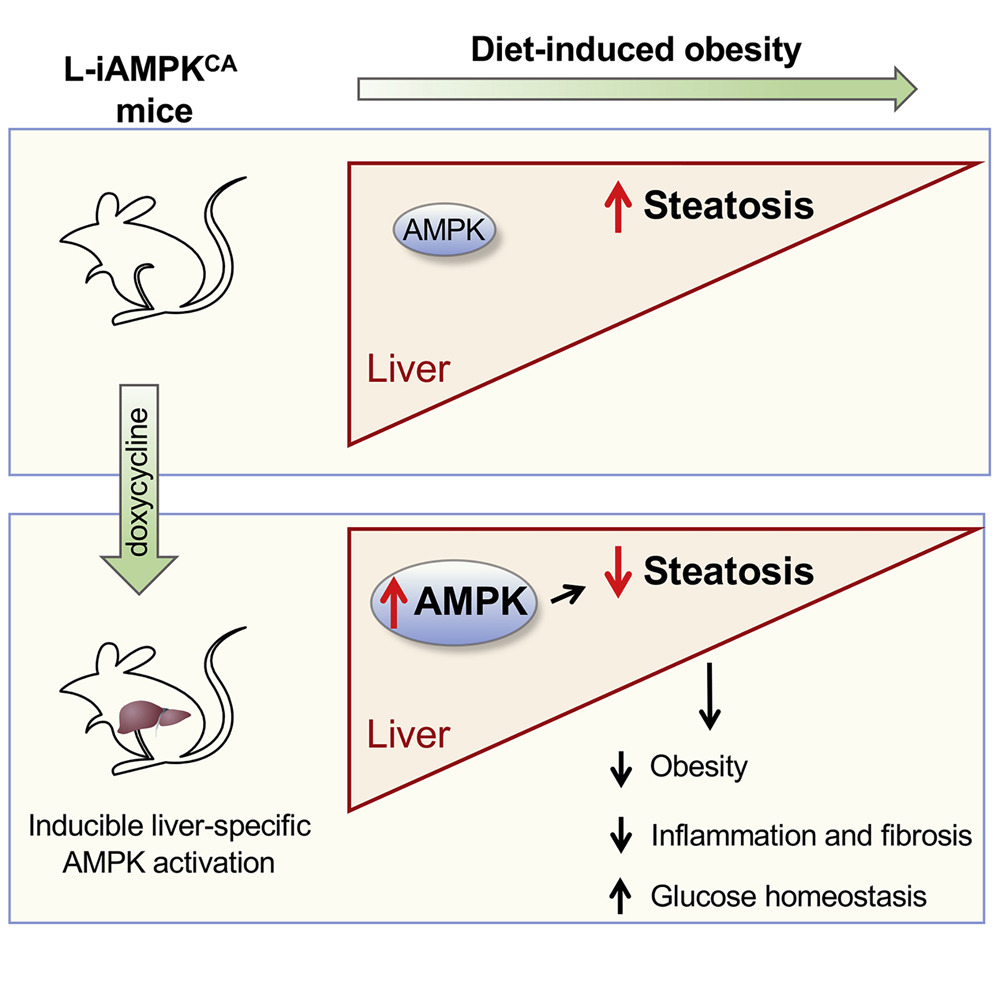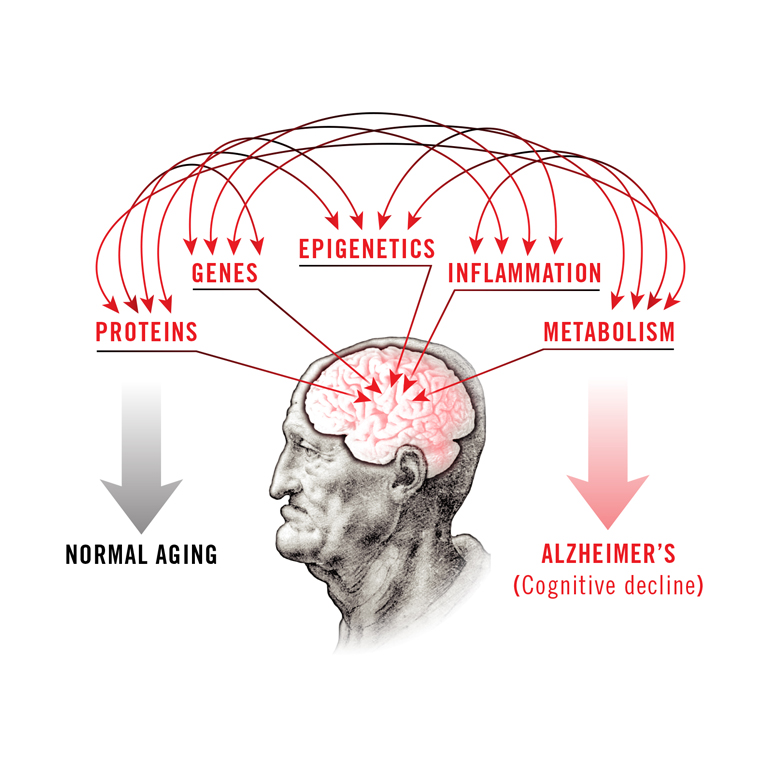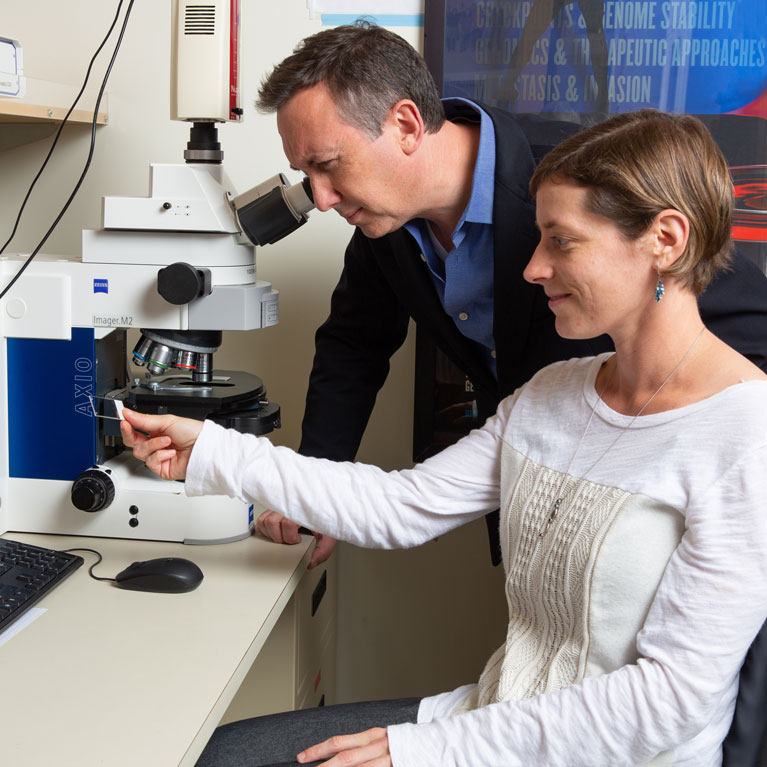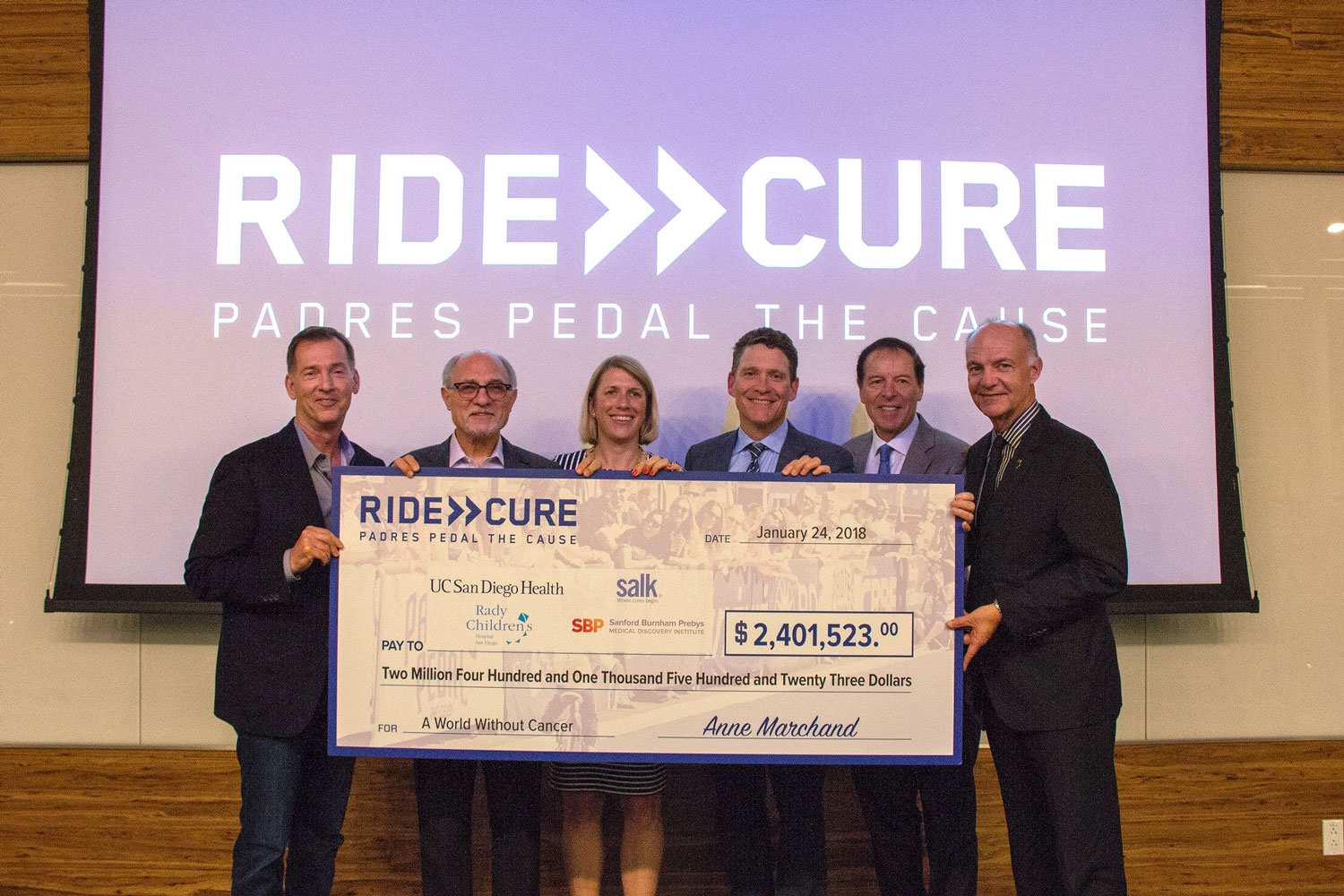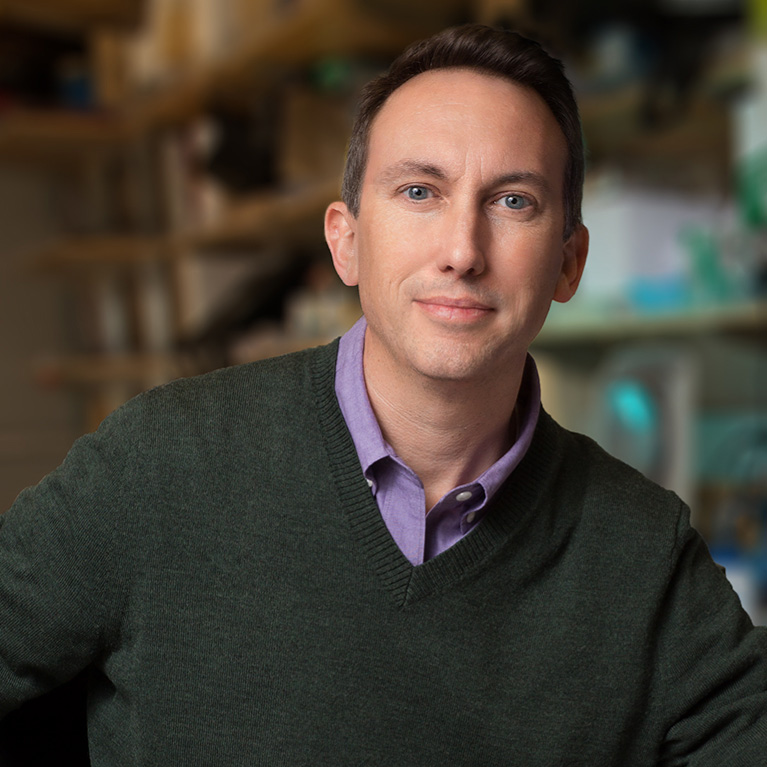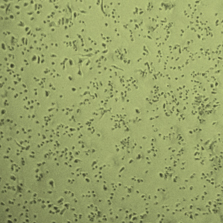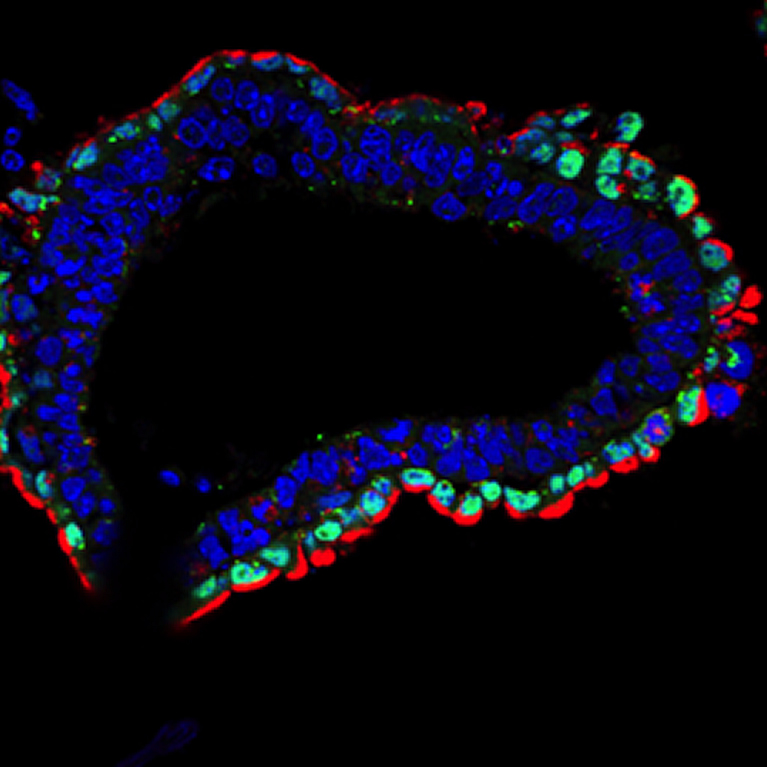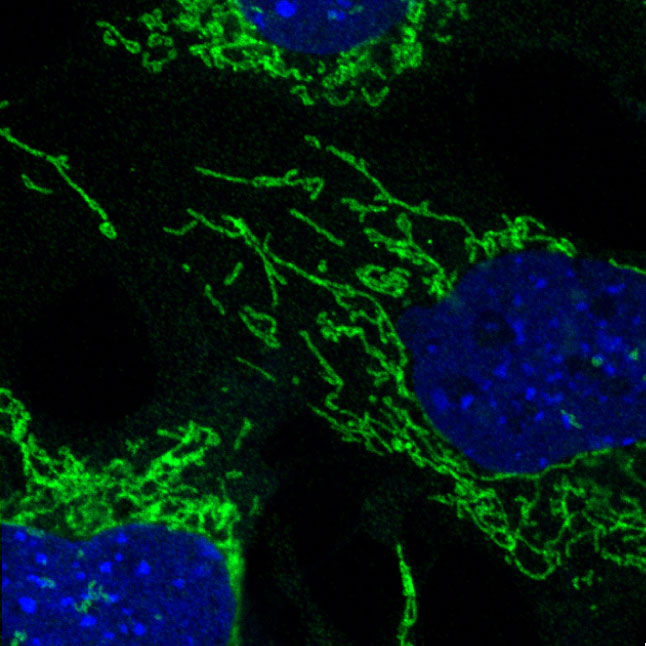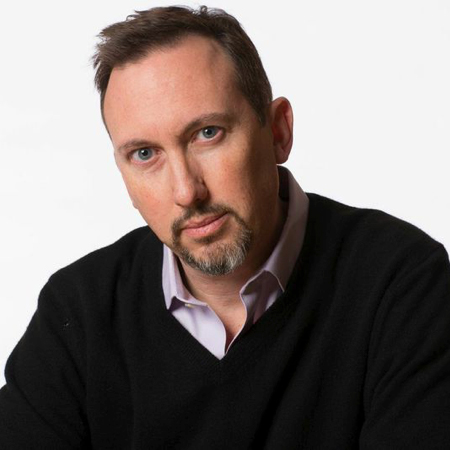Press
Seven Salk scientists named among most highly cited researchers in the world
LA JOLLA—Salk Professors Joseph Ecker, Ronald Evans, Rusty Gage, Satchidananda Panda, Reuben Shaw, and Kay Tye, as well as research assistant Joseph Nery, have all been named to the Highly Cited Researchers list by Clarivate. The 2024 list includes 6,636 researchers from 59 countries who have demonstrated “significant and broad influence in their fields of research,” as reflected by their publication of multiple papers over the past decade that rank in the top 1% by citations for their fields.
Salk Institute receives $5 million gift from Paul M. Angell Foundation to develop pancreatic cancer diagnostics and therapies
LA JOLLA—The Salk Institute will receive a four-year, $5 million gift from the Paul M. Angell Family Foundation to support pancreatic cancer research. The project’s leaders, Salk Assistant Professor Dannielle Engle, Professor Ronald Evans, and Professor Reuben Shaw, will establish a novel pipeline from patients to the laboratory and back to the clinic. The approach will provide a unique opportunity to uncover new diagnostics and therapies for pancreatic cancer.
Salk Institute celebrates 50th anniversary and renewal of National Cancer Institute designation
LA JOLLA—The Salk Institute marks 50 years as a National Cancer Institute (NCI)-Designated Cancer Center with good news: NCI has renewed the designation and grant support for another five years.
Cracking the case of mitochondrial repair and replacement in metabolic stress
LA JOLLA—Scientists often act as detectives, piecing together clues that alone may seem meaningless but together crack the case. Professor Reuben Shaw has spent nearly two decades piecing together such clues to understand the cellular response to metabolic stress, which occurs when cellular energy levels dip. Whether energy levels fall because the cell’s powerhouses (mitochondria) are failing or due to a lack of necessary energy-making supplies, the response is the same: get rid of the damaged mitochondria and create new ones.
New combination of drugs works together to reduce lung tumors in mice
LA JOLLA—Cancer treatments have long been moving toward personalization—finding the right drugs that work for a patient’s unique tumor, based on specific genetic and molecular patterns. Many of these targeted therapies are highly effective, but aren’t available for all cancers, including non-small cell lung cancers (NSCLCs) that have an LKB1 genetic mutation. A new study led by Salk Institute Professor Reuben Shaw and former postdoctoral fellow Lillian Eichner, now an assistant professor at Northwestern University, revealed FDA-approved trametinib and entinostat (which is currently in clinical trials) can be given in tandem to produce fewer and smaller tumors in mice with LKB1-mutated NSCLC.
Ten Salk professors named among best and most highly cited researchers in the world
LA JOLLA—Salk Professors Joseph Ecker, Ronald Evans, Rusty Gage, Christian Metallo, Satchidananda Panda, Reuben Shaw, and Kay Tye, along with Assistant Professor Jesse Dixon, have been named to the Highly Cited Researchers list by Clarivate. This year’s list includes 6,938 researchers from 69 countries and identifies researchers who demonstrate “significant influence in their chosen field or fields through the publication of multiple highly cited papers.” Ecker and Gage have been named to this list every year since 2014, when the regular annual rankings began. Joseph Nery, a research assistant II in the Ecker lab, was also included on the list.
Three Salk scientists among 2022 Curebound Discovery Grant winners
LA JOLLA—The Salk Institute’s American Cancer Society Professor Tony Hunter, Professor Reuben Shaw, and Assistant Professor Graham McVicker are among 12 inaugural 2022 Discovery Grant winners. The awards, which total $3 million, were launched this year by Curebound, a philanthropic organization dedicated to funding collaborative cancer research that has the potential to reach the clinic.
Salk scientists receive 2022 Mark Foundation Endeavor Award to study lung cancer
LA JOLLA—Professors Reuben Shaw, Susan Kaech, Christian Metallo and Alan Saghatelian have received a 2022 Mark Foundation for Cancer Research Endeavor Award to support their research exploring the metabolic changes that help lung cancers develop. The $3 million Endeavor Award promotes collaborative science to tackle some of the toughest challenges in cancer research. The Salk team—one of four teams chosen out of nearly 200 applications submitted by institutions around the world—hopes their work will lead to the development of more effective lung cancer treatments.
The Lustgarten Foundation and Salk Institute announce strategic pancreatic cancer research partnership
LA JOLLA/NEW YORK—The Lustgarten Foundation and Salk Institute today announced a new strategic partnership supported by a $5 million grant and focused on identifying and validating potential targets for new pancreatic cancer drugs. The effort will be led by four co-principal investigators, all prominent cancer researchers in the Salk Dedicated Program in Pancreatic Cancer: Professors Reuben Shaw, Ronald Evans, Tony Hunter and Assistant Professor Dannielle Engle. The partnership is part of the Lustgarten Advancing Breakthrough Science (LABS) Program.
Six Salk professors named among most highly cited researchers in the world
LA JOLLA—Salk Professors Joanne Chory, Joseph Ecker, Rusty Gage, Satchidananda Panda, Reuben Shaw and Kay Tye have been named to the Highly Cited Researchers list by Clarivate. The list identifies researchers who demonstrate “significant influence in their chosen field or fields through the publication of multiple highly cited papers.” Chory, Ecker and Gage have been named to this list every year since 2014, when the regular annual rankings began. This is Tye’s fifth, Shaw’s third and Panda’s first time receiving the designation. Additionally, Ecker appeared in two separate categories: “plant and animal science” and “molecular biology and genetics” and is one of 3.4 percent of researchers selected in two fields. Joseph Nery, a research assistant II in the Ecker lab, was also included on the list.
The Salk Institute and Sanford Burnham Prebys license ULK1/2 inhibitors to Endeavor BioMedicines for treatment of cancer
LA JOLLA—The Salk Institute, along with Sanford Burnham Prebys, have signed an exclusive licensing agreement with California-based Endeavor BioMedicines for an intellectual property portfolio relating to cancer therapeutics and diagnostics that target ULK1/2, a protein involved in cellular recycling, jointly developed by researchers at Salk and Sanford Burnham Prebys. The negotiations were led by the Salk Office of Technology Development and the Sanford Burnham Prebys Business Development Office.
Parkinson’s, cancer, type 2 diabetes share a key element that drives disease
LA JOLLA—When cells are stressed, chemical alarms go off, setting in motion a flurry of activity that protects the cell’s most important players. During the rush, a protein called Parkin hurries to protect the mitochondria, the power stations that generate energy for the cell. Now Salk researchers have discovered a direct link between a master sensor of cell stress and Parkin itself. The same pathway is also tied to type 2 diabetes and cancer, which could open a new avenue for treating all three diseases.
Five Salk professors named among most highly cited researchers in the world
LA JOLLA—Salk Professors Joanne Chory, Joseph Ecker, Rusty Gage, Reuben Shaw and Kay Tye have been named to the Highly Cited Researchers list by Clarivate. The list identifies researchers who demonstrate “significant influence in their chosen field or fields through the publication of multiple highly cited papers.” Professors Chory, Ecker and Gage have been named to this list every year since 2014, when the regular annual rankings began. This is Professor Tye’s fourth consecutive time and Professor Shaw’s second consecutive time receiving the designation. Joseph Nery, a research assistant II in the Ecker lab, was also included on the list.
Common diabetes drug reverses inflammation in the liver
LA JOLLA—The diabetes drug metformin—derived from a lilac plant that’s been used medicinally for more than a thousand years—has been prescribed to hundreds of millions of people worldwide as the frontline treatment for type 2 diabetes. Yet scientists don’t fully understand how the drug is so effective at controlling blood glucose.
Diabetes drug has unexpected, broad implications for healthy aging
LA JOLLA—Metformin is the most commonly prescribed type 2 diabetes drug, yet scientists still do not fully know how it works to control blood sugar levels. In a collaborative effort, researchers from the Salk Institute, The Scripps Research Institute and Weill Cornell Medical College have used a novel technology to investigate why it functions so well. The findings, which identified a surprising number of biochemical “switches” for various cellular processes, could also explain why metformin has been shown to extend health span and life span in recent studies. The work was published in Cell Reports on December 3, 2019.
Eight Salk professors named among most highly cited researchers in the world
LA JOLLA—Salk Professors Joanne Chory, Joseph Ecker, Ronald Evans, Rusty Gage, Juan Carlos Izpisua Belmonte, Terrence Sejnowski, Reuben Shaw and Kay Tye have been named to the Highly Cited Researchers list by Clarivate Analytics. The list selects researchers for demonstrating “significant and broad influence” reflected by the production of multiple highly cited papers that rank in the top 1 percent by citations for field and year.
Two therapeutic targets identified for deadly lung cancer
LA JOLLA—The vast majority of deadly lung cancer cases (85 percent) are termed non-small-cell lung carcinomas (NSCLCs), which often contain a mutated gene called LKB1. Salk Institute researchers have now discovered precisely why inactive LKB1 results in cancer development. The surprising results, published in the online version of Cancer Discovery on July 26, 2019, highlight how LBK1 communicates with two enzymes that suppress inflammation in addition to cell growth, to block tumor growth. The findings could lead to new therapies for NSCLC, and you can see news coverage of the story here.
Unlocking therapies for hard-to-treat lung cancers
Click here for a high-resolution image.
In surprising reversal, scientists find a cellular process that stops cancer before it starts
LA JOLLA—Just as plastic tips protect the ends of shoelaces and keep them from fraying when we tie them, molecular tips called telomeres protect the ends of chromosomes and keep them from fusing when cells continually divide and duplicate their DNA. But while losing the plastic tips may lead to messy laces, telomere loss may lead to cancer.
Salk awarded $19.2 million by the American Heart Association-Allen Initiative to study Alzheimer’s and aging in the brain
LA JOLLA—A team of Salk Institute researchers led by President Rusty Gage has been awarded $19.2 million over eight years by the American Heart Association-Allen Initiative in Brain Health and Cognitive Impairment to investigate mechanisms underlying Alzheimer’s disease and aging-related cognitive decline and uncover new therapies. This bold venture will comprehensively analyze interactions between five areas key to brain health: proteins, genes, metabolism, inflammation and epigenetics.
Genetic “whodunnit” for cancer gene solved
LA JOLLA—Long thought to suppress cancer by slowing cellular metabolism, the protein complex AMPK also seemed to help some tumors grow, confounding researchers. Now, Salk Institute researchers have solved the long-standing mystery around why AMPK can both hinder and help cancer.
Salk Institute launches Conquering Cancer Initiative
LA JOLLA—On Friday, April 20, 2018, the Salk Institute launched a new initiative called Conquering Cancer, to harness specific and emerging scientific strategies to tackle the five deadliest cancers: pancreatic, ovarian, lung, brain (glioblastoma) and triple-negative breast.
Padres Pedal the Cause provides $2.4 million for cancer research
LA JOLLA—Padres Pedal the Cause has donated more than $2.4 million to support cancer studies at the Salk Institute, Rady Children’s Hospital, Moores Cancer Center at UC San Diego Health and Sanford Burnham Prebys Medical Discovery Institute. The check was presented to representatives from the four organizations on January 24 and was the largest donation ever made by the grassroots organization.
The Salk Institute and Indivumed partner to advance global cancer research
LA JOLLA—The Salk Institute, which hosts a National Cancer Institute (NCI)–designated cancer center and Indivumed GmbH, a world leading cancer research company today announce a multi-year strategic alliance to secure, preserve and analyze human cancer tissue and annotated clinical data from consenting patients around the world, enabling the most cutting-edge basic and translational research in cancer.
Salk Institute scientist Reuben Shaw receives National Cancer Institute Outstanding Investigator Award
LA JOLLA—Salk Professor Reuben Shaw has received the National Cancer Institute (NCI) Outstanding Investigator Award (OIA), which encourages cancer research with breakthrough potential. Shaw, a member of Salk’s Molecular and Cell Biology Laboratory and holder of the William R. Brody Chair, will receive $4.2 million in direct funding over the next seven years to further his work. The award is granted, according to the NCI website, to innovative cancer researchers with outstanding records of productivity to allow them to take greater risks and be more adventurous in their research.
Targeting fat to treat cancer
LA JOLLA—Fat isn’t just something we eat: it may also lie at the heart of a new approach to treating cancer.
Salk scientists uncover how a cell’s “fuel gauge” promotes healthy development
LA JOLLA—(April 25, 2016) Salk scientists have revealed how a cellular “fuel gauge” responsible for monitoring and managing cells’ energy processes also has an unexpected role in development. This critical link could help researchers better understand cancer and diabetes pathways.
How the cell’s power station survives attacks
LA JOLLA—Mitochondria, the power generators in our cells, are essential for life. When they are under attack—from poisons, environmental stress or genetic mutations—cells wrench these power stations apart, strip out the damaged pieces and reassemble them into usable mitochondria.
Salk Cancer Center appoints Reuben Shaw as new director
LA JOLLA—The Salk Institute has named Professor Reuben Shaw as the new director of Salk’s National Cancer Institute-designated Cancer Center. Shaw is a member of Salk’s Molecular and Cell Biology Laboratory and the holder of the William R. Brody Chair.
Reuben Shaw honored as recipient of William R. Brody Chair
Salk scientist Reuben Shaw has been named recipient of the William R. Brody Chair in acknowledgement of his outstanding contributions and dedication to scientific research. The chair was dedicated to Salk President William Brody last month on behalf of the Salk Board of Trustees in appreciation of his six years of leadership of the Institute. Brody will retire at the end of this month.
New drug squashes cancer’s last-ditch efforts to survive
LA JOLLA–As a tumor grows, its cancerous cells ramp up an energy-harvesting process to support its hasty development. This process, called autophagy, is normally used by a cell to recycle damaged organelles and proteins, but is also co-opted by cancer cells to meet their increased energy and metabolic demands.
New gene discovered that stops the spread of deadly cancer
LA JOLLA—Scientists at the Salk Institute have identified a gene responsible for stopping the movement of cancer from the lungs to other parts of the body, indicating a new way to fight one of the world’s deadliest cancers.
Salk cancer metabolism expert Reuben Shaw promoted to full professor
LA JOLLA—Reuben Shaw, a member of the Salk Institute’s Molecular and Cell Biology Laboratory and a Howard Hughes Medical Institute early career scientist, has been promoted from associate professor to full professor. After a rigorous evaluation process by Salk senior faculty, nonresident fellows and scientific peers, the promotion was announced Friday.
Diabetes drug could hold promise for lung cancer patients
LA JOLLA, CA—Ever since discovering a decade ago that a gene altered in lung cancer regulated an enzyme used in therapies against diabetes, Reuben Shaw has wondered if drugs originally designed to treat metabolic diseases could also work against cancer.
Salk Institute announces faculty promotions
LA JOLLA, CA—Faculty members Reuben Shaw and Lei Wang, have been promoted to the position of Associate Professor at the Salk Institute after a rigorous evaluation process by Salk senior faculty, Non-Resident Fellows, and scientific peers. The career milestone distinguishes these two investigators as leading authorities in their respective disciplines who have made original, innovative and notable contributions to biological research.
Salk researchers find new drug target for lung cancer
LA JOLLA,CA—Drugs targeting an enzyme involved in inflammation might offer a new avenue for treating certain lung cancers, according to a new study by scientists at the Salk Institute for Biological Studies.
“Fasting pathway” points the way to new class of diabetes drugs
LA JOLLA, CA—A uniquely collaborative study by researchers at the Salk Institute for Biological Studies uncovered a novel mechanism that turns up glucose production in the liver when blood sugar levels drop, pointing towards a new class of drugs for the treatment of metabolic disease.
Hungering for longevity—Salk scientists identify the confluence of aging signals
LA JOLLA, CA—Substantial evidence suggests that lifespan is increased if an organism restricts its daily calorie intake, a spartan regime that some say works by just making life seem longer. A team of scientists from the Salk Institute of Biological Studies has discovered a molecular switch flipped by hunger that could not only make longevity more appetizing but identify drug targets for patients with aging-related diseases such as type II diabetes or cancer.
How cells running on empty trigger fuel recycling
LA JOLLA, CA—Researchers at the Salk Institute for Biological Studies have discovered how AMPK, a metabolic master switch that springs into gear when cells run low on energy, revs up a cellular recycling program to free up essential molecular building blocks in times of need.
Hungry cells: Tumor metabolism discovery opens new detection and treatment possibilities for rare form of colon cancer
LA JOLLA, CA-People who suffer from Peutz-Jeghers syndrome, a rare inherited cancer syndrome, develop gastrointestinal polyps and are predisposed to colon cancer and other tumor types. Carefully tracing the cellular chain-of-command that links nutrient intake to cell growth (and which is interrupted in Peutz-Jeghers syndrome), allowed researchers at the Salk Institute for Biological Studies to exploit the tumors’ weak spot.
Salk Launches Center for Nutritional Genomics with $5.5 Million Grant from Helmsley Trust
La Jolla, CA — The Salk Institute has received a $5.5 million grant from the Leona M. and Harry B. Helmsley Charitable Trust to launch the Salk Center for Nutritional Genomics. The new Center will employ a molecular approach to nutrition and its impact on the role of metabolism on the immune system, cancer, diabetes and lifespan, thereby increasing the understanding of how nutrients affect health.
Salk scientist — one of 50 nationwide — selected as HHMI Early Career Scientist
La Jolla, CA—Salk Institute scientist Reuben J. Shaw, Ph.D., has been selected a Howard Hughes Medical Institute Early Career Scientist, the HHMI announced today.
AMPK signaling: Got food?
La Jolla, CA – A team of scientists at the Salk Institute for Biological Studies think they know how many-if not most-living organisms answer this question. They recently showed that when food supplies dwindle, mammals, fruitflies, or frogs probably activate the same ancient cell signaling pathway in order to conserve energy.
Salk Institute’s new faculty scientist conducts basic research on molecular pathways at intersection of diabetes and cancer
La Jolla, CA – A research scientist who recently discovered a critical message-relaying pathway that underlies the development of both cancer and type 2 diabetes, in January joined the Salk Institute for Biological Studies as an assistant professor in the institute’s Molecular and Cell Biology Laboratory and Dulbecco Laboratory for Cancer Research.
